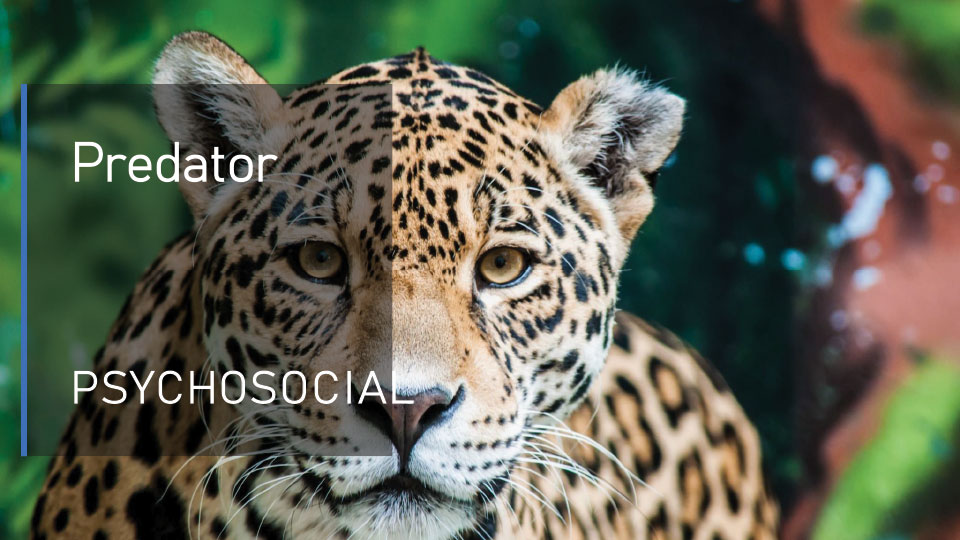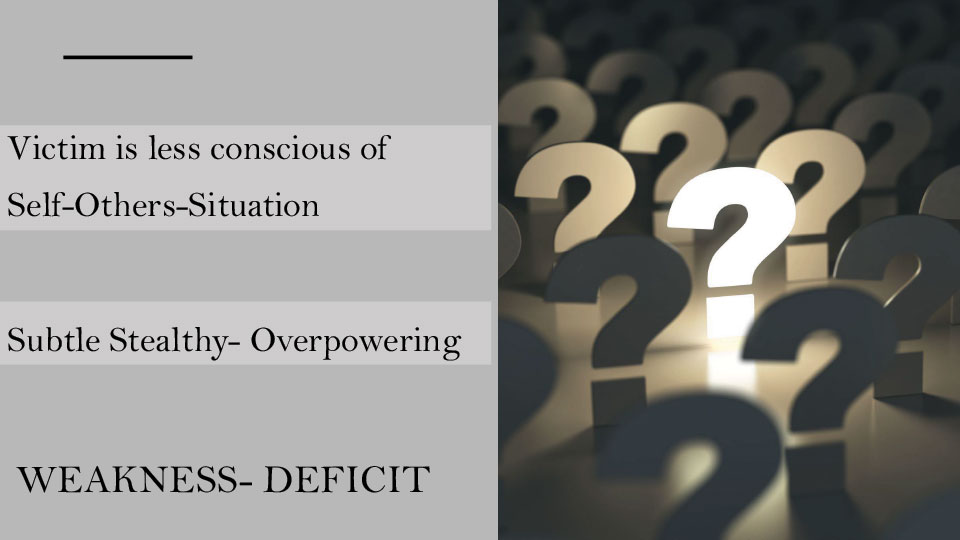A Psycho-Social Predator
Dear Readers, Welcome to SC Musings, Blog 31
I faced a challenging and interesting saga on my trip to Melbourne for my 2nd mentoring with Rani Hughes for my Master Trainership in Taichi for Arthritis and Fall Prevention. After sitting in the aircraft from 1 am for close to 2 hours, we passengers were told that this flight was cancelled due to technical difficulties in the aircraft. Panic struck and escalated because the staff were moving around, bland faced and not giving answers. A passenger stated in raised voice: “This is not the way to deal with this situation- I am 70 plus- and you are making me sit with uncertainty. Check us into a hotel and fly us out tomorrow – I need the rest”. I was frozen and immediately texted Rani about the delay- the next few days of Taichi training blurred. 3 Indian origin men in their 30’s, permanent residents of Australia joked about the situation- ‘they know and are not telling us’ was followed by hearty laughter. Lightning tensions, they drew out smiles and laughter from the rest of us. Even the ’70 year old’ began settling, though she threatened to ‘let them have it on social media’.
In Blog 30 we addressed ‘allowing it to happen’- and in this Blog 31 we will look at the risks of ‘allowing it to happen’ by delving into the topic of a ‘psycho-social predator’.
The ’70 year old’ played the victim and persecutor roles simultaneously by seeking sympathy along with blaming and threatening alternately. Though her reasoning was justifiable, her expression and tone were unpleasant and furthered tension. The 3 men turned the direction by not ‘allowing it to happen’ her way. Finally we were moved to another aircraft, which flew out from Delhi at 5 am.
Let’s now move from temporary to life situations.
The biggest risk in ‘allowing it to happen’ in social situations may end in disaster. Personally and professionally, I continue to face situations were ‘allowing it to happen’ in the name of adjustment, society etc., breeds and grows a psychosocial predator.

Predators in the wild hunt and kill instinctively to satisfy their hunger, based on the principle of ‘survival of the fittest’. A psychosocial predator on the other hand is a human being who preys and holds victims to satisfy his/her hunger for power.
This behaviour of stealthily capturing and holding victims is seldom done openly- but often under the guise of protection, care etc.
I am introducing this concept of a psycho-social predator in this juncture to bring our attention to the danger of ‘allowing it to happen’ in a blindly trusting manner.
Often we are given huge doses of positive psychology, and taught principles of surrender and transcendence. However Dear Readers, these can be traps when practised without guided awareness. Hence Blog 31 delineates characteristics and qualities of a psycho-social predator, based on my 4 decades of life experience. It also discusses the processes by which the victims are ensnared.
Typically, a psycho-social predator hunts for individuals with weaknesses or deficits which maybe physical, psychological, cognitive, social and or spiritual. These disadvantaged persons are overpowered, often silently, subtly and strategically by exhibitions of knowledge and skills, which may be intellectual, mystical or a combination of both.
Once trapped, the ensnared victims are often in a dazed state, not fully conscious of self, others around or the reality situation.

Rather than delving deeper into the psychic manoeuvres of a psychosocial predator and the plight of the victims, I am pausing with a few questions to you Dear Readers:
- What is your experience of a psycho-social predator?
- Where and how have you come across one?
- Does each of us have a psycho-social predator within?
We will continue with ‘allowing it to happen’ safely and productively in Blog 32.
